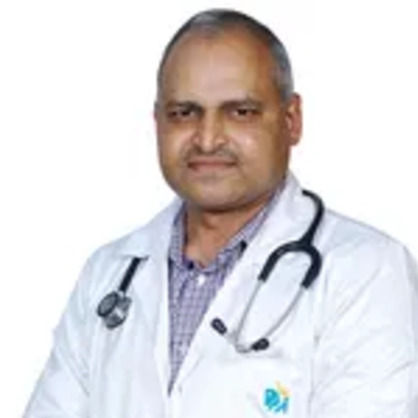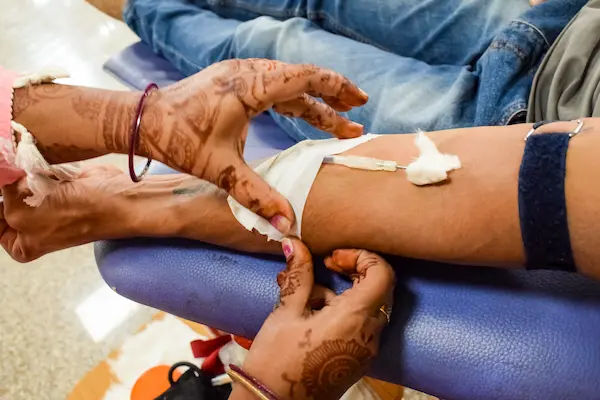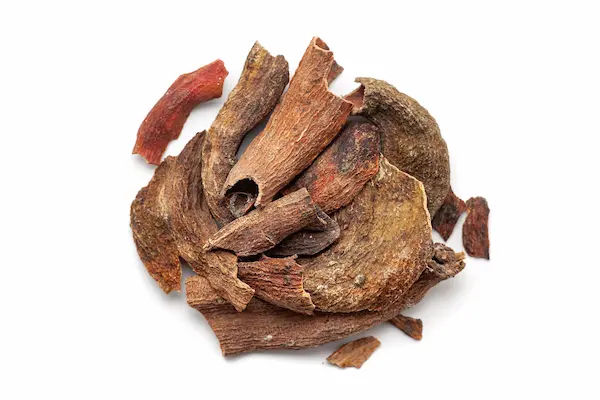Stool Tests and Their Significance
Explore the significance of stool tests in diagnosing digestive disorders, infections, and overall gut health. Learn about the types of stool tests and what your results may indicate.

Written by Dr. Siri Nallapu
Reviewed by Dr. Rohinipriyanka Pondugula MBBS
Last updated on 13th Jan, 2026

Stool tests may not be the most pleasant topic to discuss, but they play a crucial role in diagnosing and monitoring various health conditions. If your doctor has recommended a stool test, you might have questions about why it’s needed and what it reveals. This article will help you understand the importance of stool tests, what they detect, and how they contribute to better health.
What is a Stool Test?
A stool test, also known as a fecal test, is a diagnostic procedure that examines a sample of your stool (poop) to check for infections, digestive disorders, or other health problems. Since stool contains waste products, bacteria, and other substances from your digestive tract, analyzing it can provide valuable insights into your gut health.
Consult a Top Specialist
Why Are Stool Tests Done?
Doctors recommend stool tests for several reasons, including:
- Detecting Infections – Bacterial, viral, or parasitic infections (like salmonella, E. coli, or giardia) can cause diarrhea, stomach pain, or fever.
- Identifying Digestive Disorders – Conditions like irritable bowel syndrome (IBS), inflammatory bowel disease (IBD), or celiac disease may require stool analysis.
- Checking for Blood – Hidden blood in stool could indicate conditions like hemorrhoids, ulcers, or even colorectal
cancer. - Assessing Nutrient Absorption – Some tests measure fat content to check for malabsorption issues (e.g., pancreatitis or cystic fibrosis).
- Monitoring Gut Bacteria – Imbalances in gut flora (dysbiosis) can lead to digestive problems.
- Screening for Colon Cancer – The fecal immunochemical test (FIT) detects blood that may signal early-stage cancer.
Common Types of Stool Tests
Here are some frequently used stool tests:
- Fecal Occult Blood Test (FOBT/FIT) – Checks for hidden blood, often used in colon cancer screening.
- Stool Culture – Identifies harmful bacteria or parasites causing infections.
- Ova and Parasite Test (O&P) – Detects parasites like giardia or worms.
- Calprotectin Test – Measures inflammation levels to diagnose IBD (Crohn’s disease or ulcerative colitis).
- Stool DNA Test – Screens for genetic changes linked to colorectal cancer.
- Fat Content Test – Checks for fat malabsorption disorders.
How to Prepare for a Stool Test?
Most stool tests require minimal preparation, but your doctor may advise:
- Avoiding certain medications (like antacids or antibiotics) before the test.
- Not collecting samples during menstruation (to avoid blood contamination).
- Using a clean, dry container provided by the lab.
How is the Sample Collected?
The following are the steps for sample collection,
- Your doctor or lab will provide a collection kit.
- Use a clean container or special paper to catch the stool.
- Avoid mixing urine or toilet water with the sample.
- Seal the container and store it as instructed (some tests require refrigeration).
- Deliver it to the lab promptly.
Understanding Your Results
The results can be interpreted in the following way,
- Normal Results – No blood, harmful bacteria, or parasites detected.
- Abnormal Results – May indicate infections, inflammation, or digestive disorders.
- Blood in stool could suggest hemorrhoids, ulcers, or cancer.
- High fat content may point to malabsorption issues.
- Presence of parasites or bacteria confirms an infection.
Your doctor will explain the findings and recommend further tests or treatments if needed.
When Should You Get a Stool Test?
Consult your doctor if you experience:
- Persistent diarrhea or constipation
- Blood or mucus in stool
- Unexplained weight loss
- Severe abdominal pain or bloating
- Chronic digestive discomfort
Tips for Maintaining Good Gut Health
While stool tests help diagnose problems, you can take steps to keep your digestive system healthy:
- Eat a Fiber-Rich Diet – Fruits, vegetables, and whole grains support digestion.
- Stay Hydrated – Drinking water prevents constipation.
- Probiotics & Prebiotics – Yogurt, kefir, and fermented foods promote good gut bacteria.
- Limit Processed Foods – High-fat, sugary, or spicy foods can irritate the gut.
- Exercise Regularly – Physical activity aids digestion.
- Manage Stress – Stress can worsen digestive issues like IBS.
When to See a Doctor?
If you have persistent digestive symptoms or abnormal stool test results, consult a gastroenterologist for further evaluation. Early detection of infections, inflammation, or cancer can lead to better treatment outcomes.
Book a Stool Test with Apollo 24|7
If your doctor has recommended a stool test, you can easily schedule one through Apollo 24|7. With at-home sample collection and accurate lab analysis, getting tested is convenient and hassle-free.
Final Thoughts
Stool tests are a simple yet powerful tool for diagnosing digestive and systemic health issues. While the idea might seem uncomfortable, these tests provide essential information that helps doctors detect problems early and recommend the right treatment. If you’re experiencing gut-related symptoms, don’t hesitate to talk to your doctor as your digestive health matters!
Consult a Top Specialist
Consult a Top Specialist

Dr. Ajay K Sinha
General Physician/ Internal Medicine Specialist
30 Years • MD, Internal Medicine
Delhi
Apollo Hospitals Indraprastha, Delhi
(225+ Patients)

Dr. M L Ezhilarasan
General Practitioner
6 Years • MBBS
Visakhapatnam
Apollo 24|7 Clinic - Andhra Pradesh, Visakhapatnam

Dr. Zulkarnain
General Physician/ Internal Medicine Specialist
8 Years • MBBS, Fellowship in Family Medicine
Bengaluru
Apollo Clinic, Indiranagar, Bengaluru
(25+ Patients)

Dr. Dhanraj K
General Physician/ Internal Medicine Specialist
25 Years • MBBS, MD Internal Medicine - Osmania Medical College, Hyderabad
Hyderabad
Apollo Hospitals Jubilee Hills, Hyderabad
(425+ Patients)

Dr. Swarna Deepak K
General Physician/ Internal Medicine Specialist
20 Years • MBBS: MD (Internal Medicine) MRCP (UK), EDIC (European Diploma in Critical Care), IDCCM, IFCCM (Critical Care), FID (Royal Liverpool Academy)
Hyderabad
Apollo Hospitals Jubilee Hills, Hyderabad
(425+ Patients)
Consult a Top Specialist

Dr. Ajay K Sinha
General Physician/ Internal Medicine Specialist
30 Years • MD, Internal Medicine
Delhi
Apollo Hospitals Indraprastha, Delhi
(225+ Patients)

Dr. M L Ezhilarasan
General Practitioner
6 Years • MBBS
Visakhapatnam
Apollo 24|7 Clinic - Andhra Pradesh, Visakhapatnam

Dr. Zulkarnain
General Physician/ Internal Medicine Specialist
8 Years • MBBS, Fellowship in Family Medicine
Bengaluru
Apollo Clinic, Indiranagar, Bengaluru
(25+ Patients)

Dr. Dhanraj K
General Physician/ Internal Medicine Specialist
25 Years • MBBS, MD Internal Medicine - Osmania Medical College, Hyderabad
Hyderabad
Apollo Hospitals Jubilee Hills, Hyderabad
(425+ Patients)

Dr. Swarna Deepak K
General Physician/ Internal Medicine Specialist
20 Years • MBBS: MD (Internal Medicine) MRCP (UK), EDIC (European Diploma in Critical Care), IDCCM, IFCCM (Critical Care), FID (Royal Liverpool Academy)
Hyderabad
Apollo Hospitals Jubilee Hills, Hyderabad
(425+ Patients)
.webp)



_0.webp)